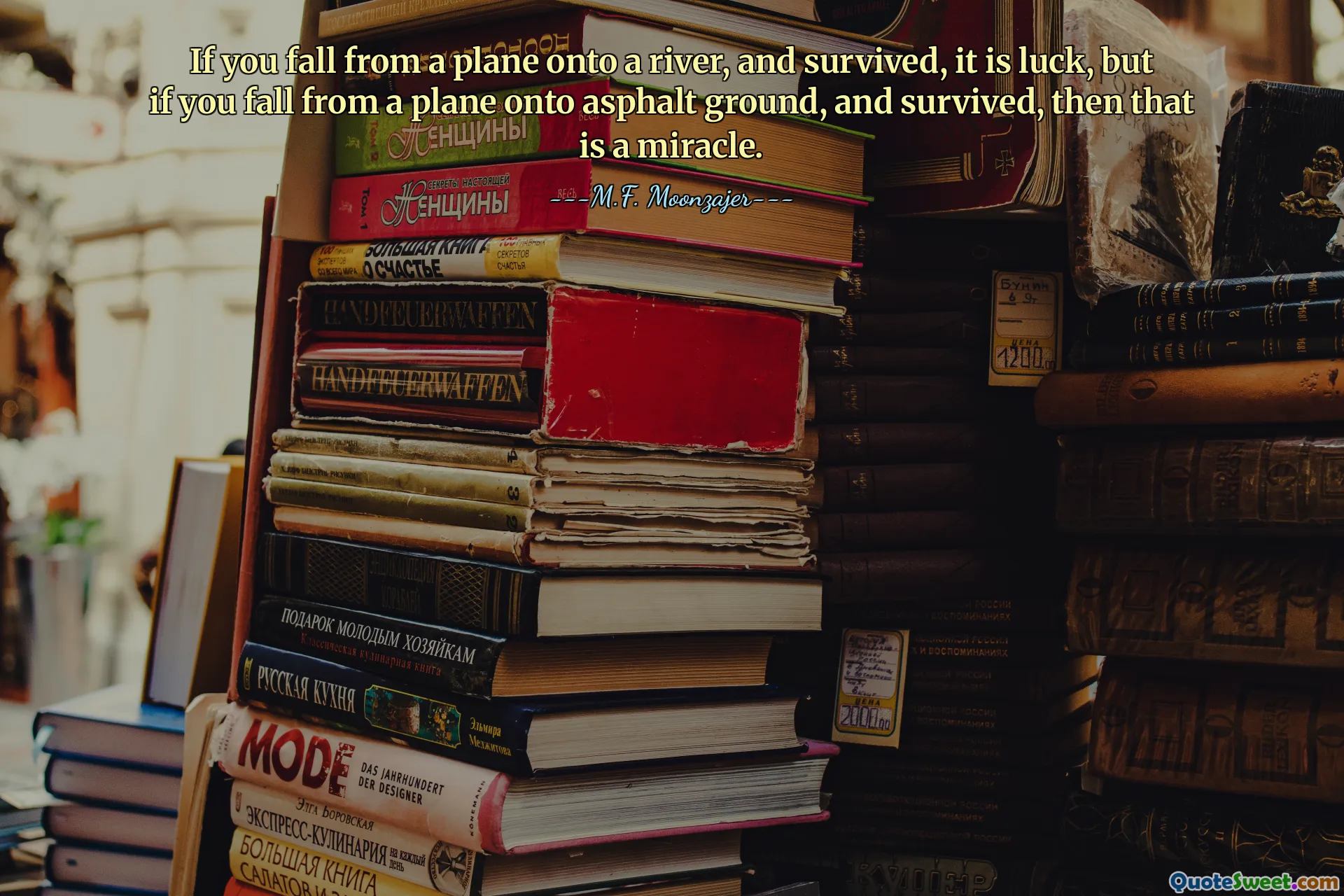
If you fall from a plane onto a river, and survived, it is luck, but if you fall from a plane onto asphalt ground, and survived, then that is a miracle.
This quote prompts a profound reflection on the nature of luck and miracles in our lives. It highlights how outcomes that might seem improbable or coincidental in mundane circumstances could be perceived as miracles under more severe conditions. For example, surviving a fall into a river, largely thought to be life-threatening, is attributed to luck—perhaps because water might cushion the fall or assist in survival in unpredictable ways. Conversely, surviving a fall onto a hard, unforgiving surface like asphalt is generally considered more unlikely and more deadly. When such an improbable survival occurs in this harsher context, it feels less like mere chance and more like a miraculous event. This distinction underscores how our perception of luck and miracles is often influenced by context, severity, and expectation. It invites us to consider that what we often dismiss as luck could, under different circumstances, be viewed as an extraordinary miracle. Our understanding of life's fragile nature, the randomness of chance, and the extraordinary instances where survival defies logic challenges us to reevaluate what we consider fortunate or miraculous. It also reminds us that life’s unpredictability often places us in situations where survival is uncertain, and these moments can inspire both awe and gratitude. Recognizing the thin line between luck and miracle encourages humility and a deeper appreciation for the unpredictable beauty of life, especially during its most challenging moments.











